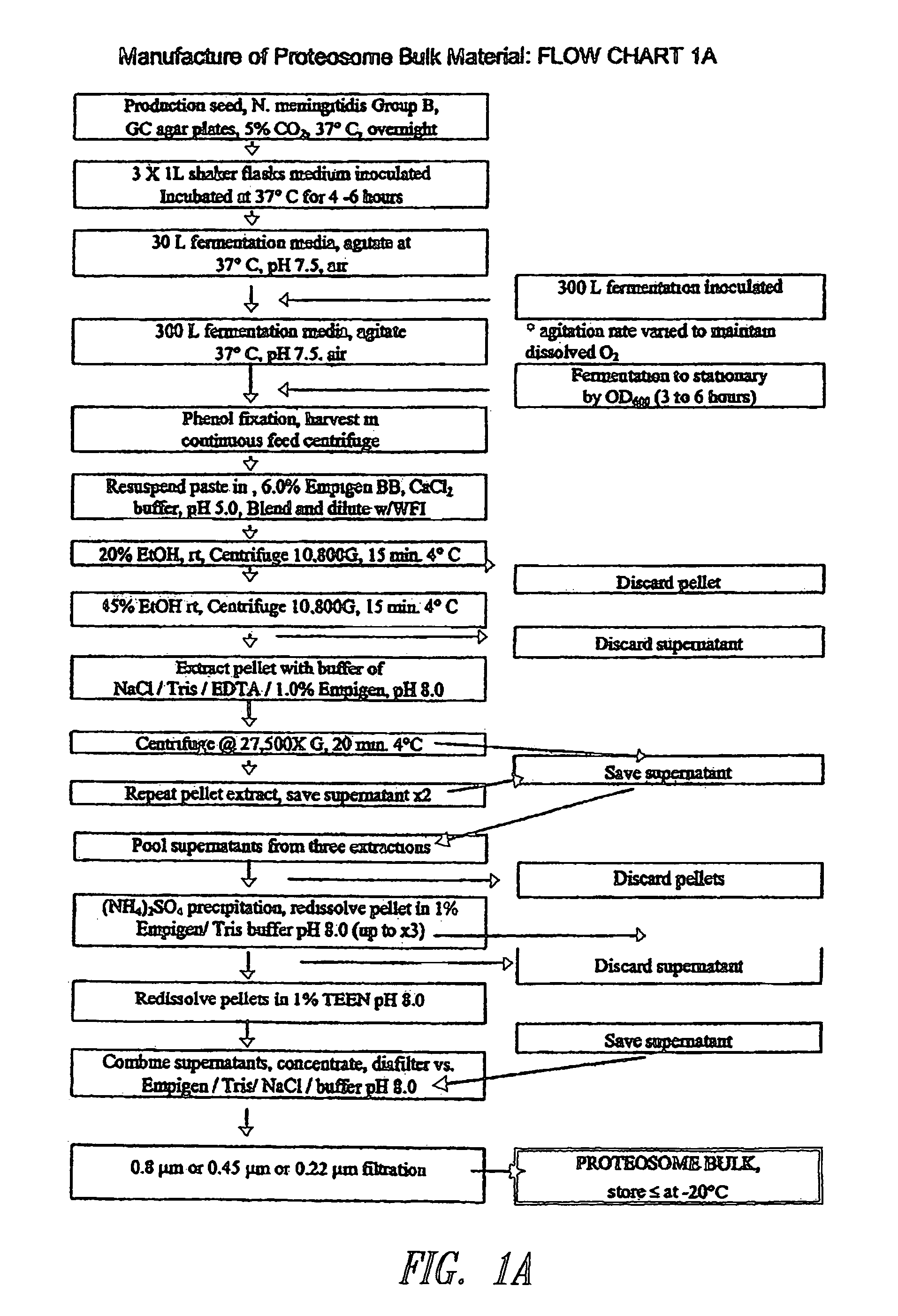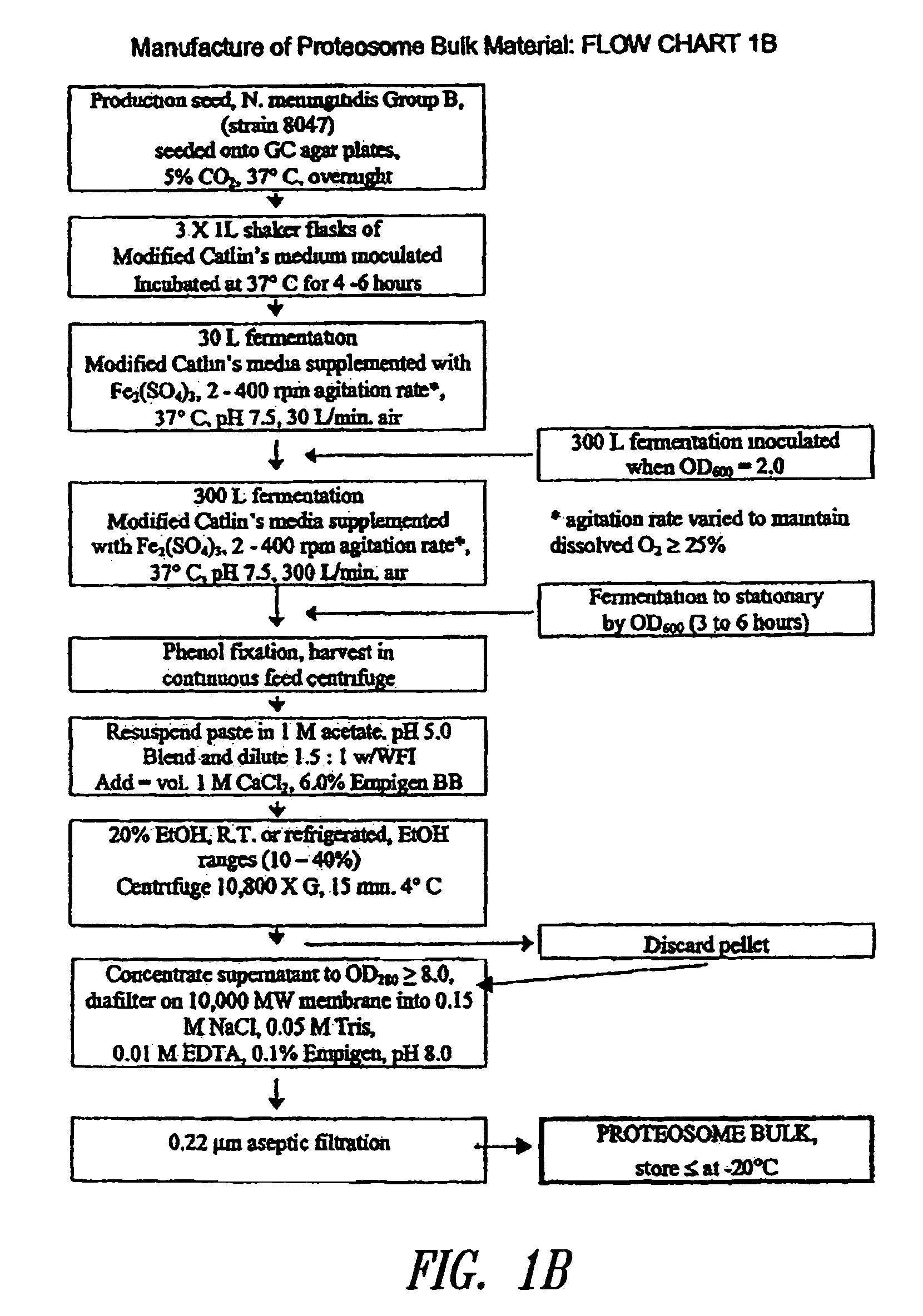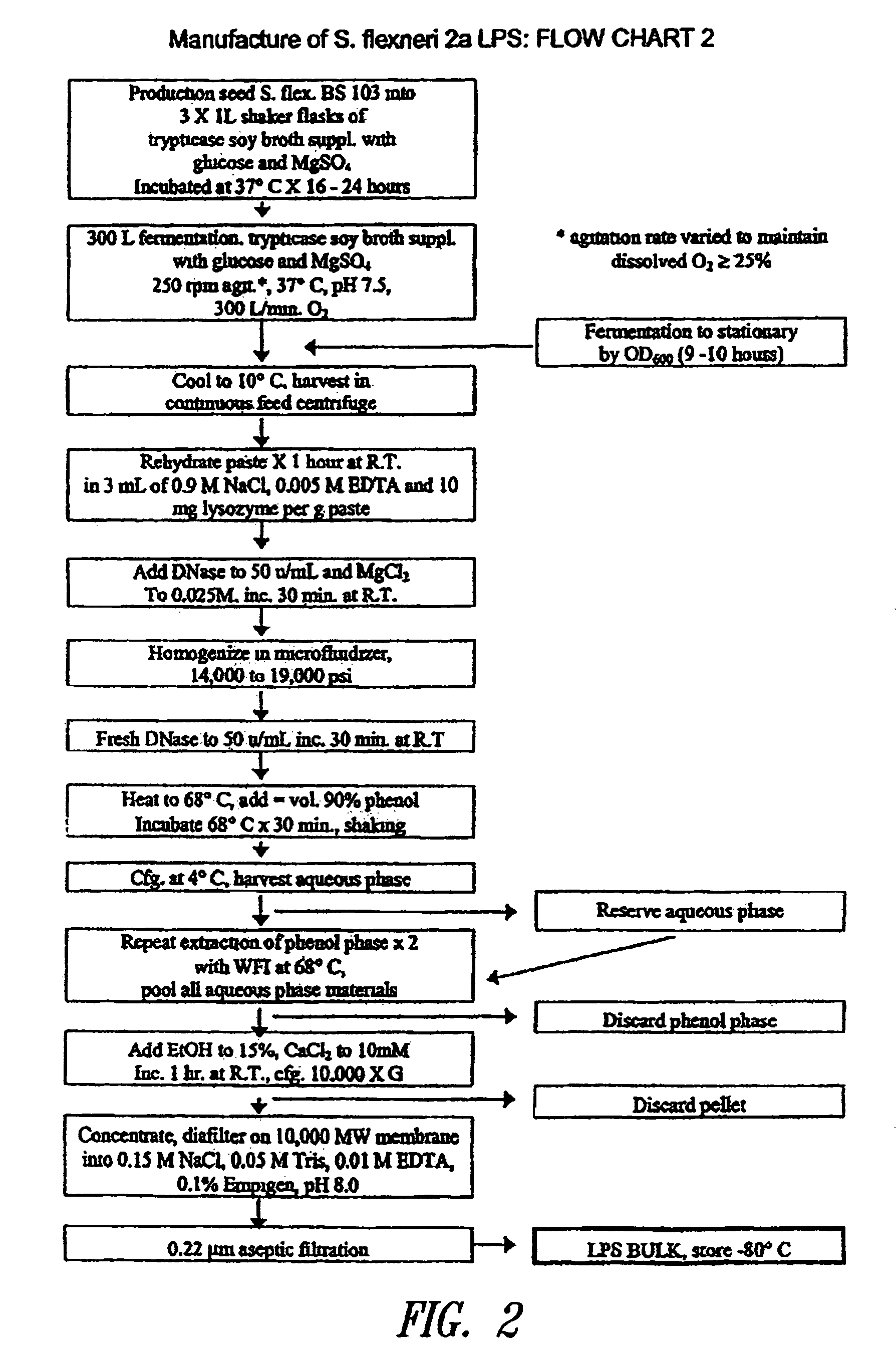Compositions and methods for activating innate and allergic immunity
a technology of innate and allergic immunity and compositions, applied in the field of immunomodulation, can solve the problems of potential significant side effects, morbidity, mortality, etc., and achieve the effect of eliciting or enhancing a non-specific innate immune response and altering hyperreactive responses
- Summary
- Abstract
- Description
- Claims
- Application Information
AI Technical Summary
Problems solved by technology
Method used
Image
Examples
example 1
Preparation of Proteosomes
[0091]Immunogens (e.g., microbial antigens or allergens) may be formulated with Proteosomes to form an immunogenic composition of the instant invention capable of eliciting a protective immune response or tolerance in a human or animal subject. Proteosomes are useful as an adjuvant and are comprised of outer membrane proteins purified from Gram-negative bacteria. Methods for preparing Proteosomes are described in, for example, Mallett et al. Infect. Immun. 63:2382, 1995; U.S. Pat. No. 6,476,201 B1; U.S. Patent Application Publication No. 2001 / 0053368; and U.S. Patent Application Publication No. 2003 / 0044425. Briefly, a paste of phenol-killed Group B type 2 Neisseria meningitidis was extracted with a solution of 6% Empigen® BB (EBB) (Albright and Wilson, Whithaven, Cumbria, UK) in 1 M calcium chloride. The extract was precipitated with ethanol, solubilized in 1% EBB-Tris / EDTA-saline, and then precipitated with ammonium sulfate. The precipitated Proteosomes w...
example 2
Preparation of Liposaccharides
[0093]The example in Flowchart 2 (FIG. 2) shows the process for the isolation and purification of LPS (e.g., non-detoxified) from S. flexneri or P. shigelloides. This process can similarly be used for preparing LPS from one or more other Gram-negative bacteria, including Shigella, Plesiomonas, Porphyromonas, Escherichia, and Salmonella species. Following growth of bacteria by fermentation in 300 L, the bacteria were sedimented and the cell paste was re-hydrated with 3 ml 0.9 M NaCl, 0.005 M EDTA, and 10 mg lysozyme per gram of bacterial paste. Lysozyme digestion was allowed to proceed for 1 hour at room temperature. Then 50 U / ml Benzonase® (DNase) (Merck Chemicals) in 0.025 M MgCl2 was added, and DNase digestion was allowed to proceed at room temperature for 30 minutes. The suspension was then cracked by passage through a microfluidizer at 14,000 to 19,000 psi. Fresh DNase (50 U / ml) was added, and digestion of the suspension was allowed to proceed for a...
example 3
Preparation and Characterization of Proteosome:Liposaccharide Adjuvant
[0094]A Proteosome adjuvant formulation was prepared by admixing Proteosomes with LPS (Protollin). The LPS can be derived from any of a number of one or more Gram negative bacteria, such as Shigella, Plesiomonas, Escherichia, or Salmonella species (see Example 2), which is mixed with the Proteosomes of Example 1, as described in Flowchart 3 (FIG. 3). Briefly, Proteosomes and LPS were thawed overnight at 4° C. and the detergent concentration was adjusted to 1% Empigen® BB in TEEN buffer. The Proteosomes and LPS were mixed for 15 minutes at room temperature in quantities that resulted in a final wt / wt ratio of between about 10:1 and about 1:3 of Proteosome:LPS. The Proteosome:LPS mixture was diafiltered on an appropriately sized (e.g., Size 9) 10,000 MWCO (molecular weight cut-off) hollow fiber cartridge into TNS buffer (0.05 M Tris, 150 mM NaCl pH 8.0). The diafiltration was stopped when Empigen® content in the per...
PUM
 Login to View More
Login to View More Abstract
Description
Claims
Application Information
 Login to View More
Login to View More - R&D
- Intellectual Property
- Life Sciences
- Materials
- Tech Scout
- Unparalleled Data Quality
- Higher Quality Content
- 60% Fewer Hallucinations
Browse by: Latest US Patents, China's latest patents, Technical Efficacy Thesaurus, Application Domain, Technology Topic, Popular Technical Reports.
© 2025 PatSnap. All rights reserved.Legal|Privacy policy|Modern Slavery Act Transparency Statement|Sitemap|About US| Contact US: help@patsnap.com



